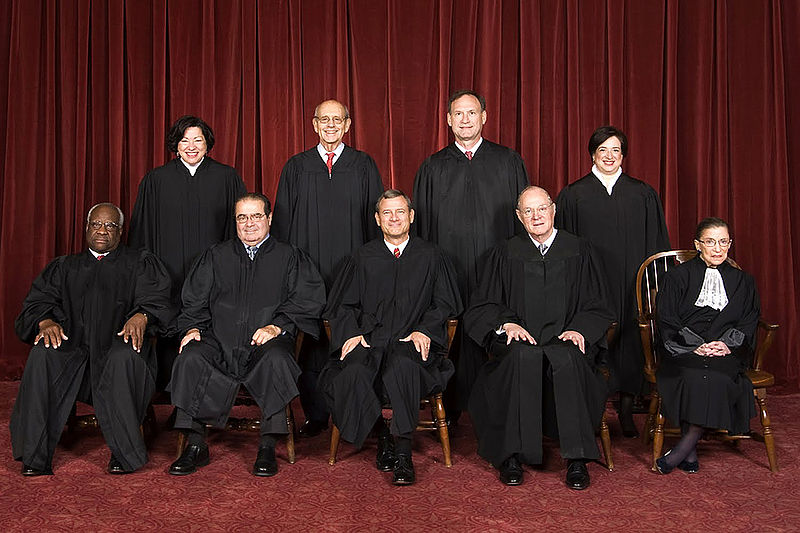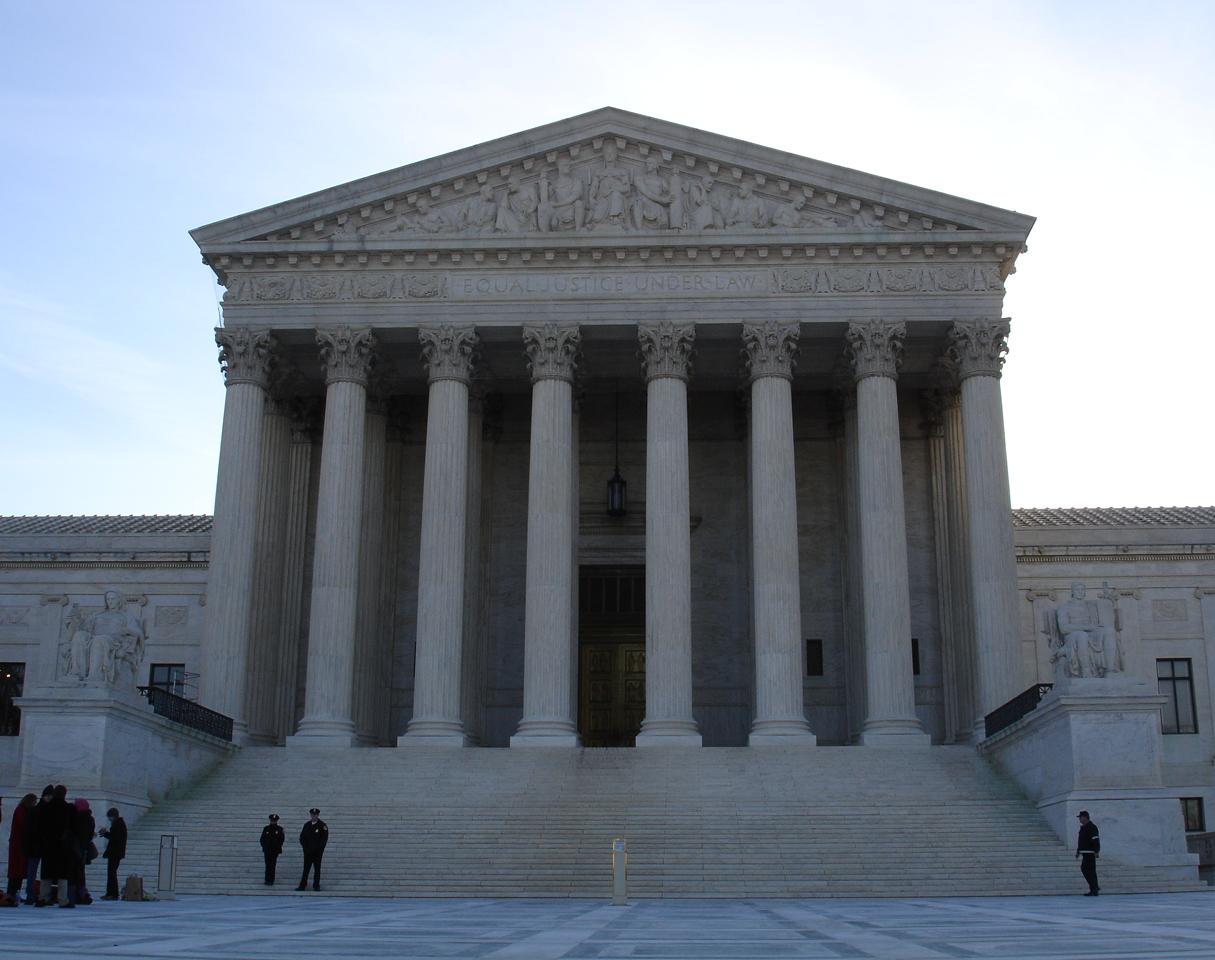Breaking News–Supreme Court Victory for Subcontractors

by Mark A. Cobb
In its December 3, 2013 ruling, the U.S. Supreme Court took a very important stand in favor of subcontractors! For those of us watching Atlantic Marine Construction Co., Inc. v. United States District Court for the Western District of Texas, et al. closely, we were delighted to see that the Supreme Court upheld the laws of twenty-four states (which impacts every state) to limit the uses of forum-selection clauses in construction contracts.
What is a Forum Selection Clause? Forum selection clauses are very common in all types of contracts as they establish the jurisdiction where a dispute related to the contract will occur. In other words, for example, a California general contractor and a subcontractor from Alabama working on a project in Georgia might agree in their subcontract agreement that any and all disputes related to their contract will be resolved in Georgia as that is the project’s location. This makes sense as both parties were working in Georgia, the building in dispute is in Georgia, many of the witnesses were or are in Georgia, and it involves Georgia real estate.
Do Forum Selection Clauses in Construction Contracts Differ from Forum Selection Contracts in Other Business Agreements? Yes, and that’s the impact of this case. In the most general terms, forum selection clauses in commercial contracts tend to be enforceable. Construction contracts, however, have very significant public policy consideration as well as issues related to state and federal laws. Specifically, many states have enacted statutes which either void or make voidable forum selection clauses in construction contract. States have singled out construction contracts due to public policy related to the situs of the project among other reasons.
Why do Some States Limit the Terms of Forum Selection Clauses? Imagine in the example above regarding the California general contractor, that the contract selected California as the proper jurisdiction for all disputes. It might not be as fair for many reasons including California’s natural tendency to favor its citizens (in the case the general contractor); frequently, the general contractor has deeper pockets than the specialty subcontractor so to require the Alabama subcontractor to enforce its rights in California could be very expensive, the costs to fly witnesses located in the project’s location (Georgia) is time-consuming and expensive, and, frequently, subcontractors have limited opportunity to negotiate the terms of their contracts. Furthermore, and perhaps most importantly, the dispute would involve a construction site or building located in Georgia. Thus, many state legislatures have put limits onto the use of forum selection clauses in construction contracts.
What Happened in the Recent Case Decided by the Supreme Court? In Atlantic Marine Construction Co., Inc. v. U.S. District Court for the Western District of Texas, a Virginia-based general contractor, Atlantic Marine, hired a subcontractor named J-Crew Management, Inc, a Texas corporation, to build a child care facility in Fort Hood, Texas. And, the subcontract between Atlantic Marine and J-Crew contained a forum-selection clause requiring that all disputes “shall be litigated in the Circuit Court for the City of Norfolk, Virginia, or the United States District Court for the Eastern District of Virginia, Norfolk Division.”
J-Crew, in turn, subcontracted some of its work to sub-subcontractors who were located in or near Fort Hood, Texas (very close to the project). All of J-Crew’s work was performed in Texas, and all of the sub-subcontractors work was performed in Texas. At the close of the project, however, J-Crew was owed almost $160,000 even though it had timely completed its work. In order to recover the amount due, J-Crew brought suit against the general contractor in Texas (in the federal district where the project was located). The general contractor, Atlantic Marine, citing the forum-selection clause contained in the construction subcontract, moved to dismiss or transfer J-Crew’s case to federal court in Virginia.
The Trial Court’s Decision: Because the project occurred solely in Texas, the claim arose in Texas, all of the participants had been in Texas, and most of the evidence concerning the claim was located in Texas, the trial court agreed with J-Crew and refused to transfer venue to Virginia. Furthermore, the Texas legislature had enacted a statute which states that construction contracts for improvements to real property located in Texas are “voidable by the party obligated by the contract to perform the construction” if the contract requires litigation in another state.
Federal Appeals Court Upholds State Law: In response to the trial court’s ruling, Atlantic Marine appealed to the Federal Court of Appeals to seek enforcement of the forum-selection clause, but the appeals court agreed with the trial court. Finally, Atlantic Marine appealed to the U.S. Supreme Court, which granted review. The Supreme Court heard oral arguments in the case in October and handed down their ruling this week.
Why The U.S. Supreme Court Upheld the Trial Court’s Decision: The Supreme Court recognized states rights in not overruling the Court of Appeals Decision. And, in fact, the Supreme Court’s holding states that when a federal court considers the forum for a case, “the court should not consider the parties’ private interests aside from those embodied in the forum-selection clause; it may consider only public interests.” By authorizing public policy as a part of a court’s decision to transfer or dismiss a case, the Supreme Court recognized state sovereignty as well as the need for public interest to enforce states laws.
Important Lessons for Subcontractors and Suppliers: Although Atlantic Marine did not render all forum selection clauses in construction contracts unenforceable, it does permit a balance between parties’ rights to contract and public policy. In addition, Atlantic Marine is a great reminder of the importance that even a seemingly insignificant subcontract term can hold in a construction contract. Frequently, forum-selection provisions are buried deep within the “boiler plate” terms of the construction contract; parties entering into contract must pay attention to each of these terms including the forum selection clauses.

